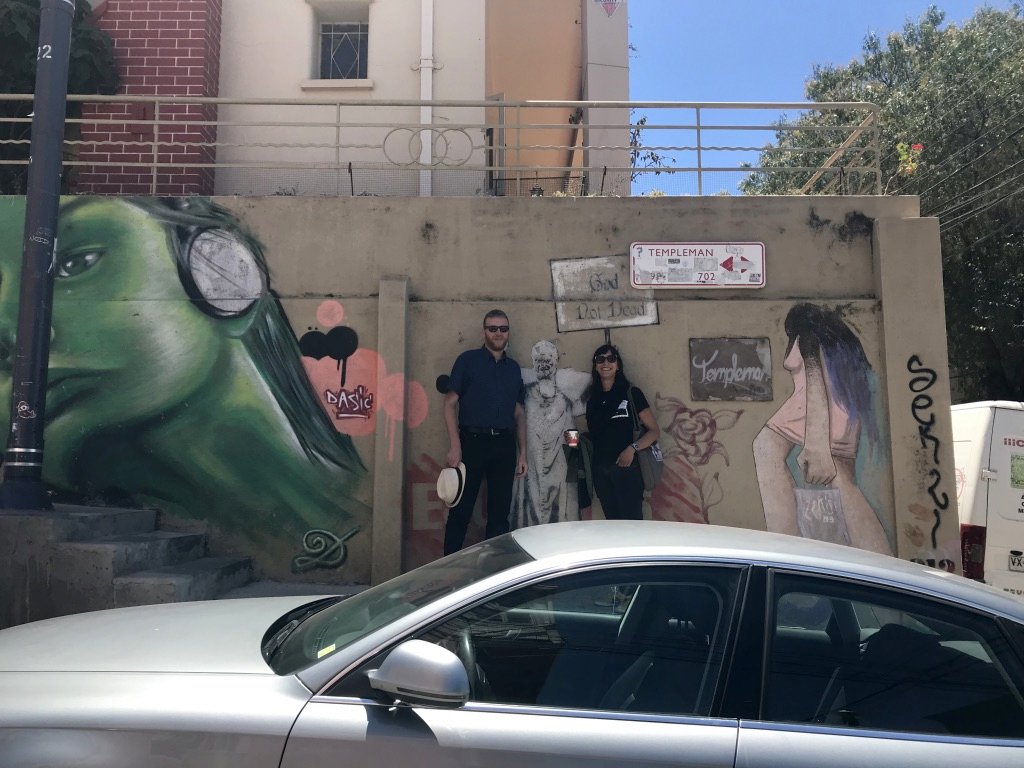Travel Grant Report by Laurent Licata
26.02.2019, by Tina Keil in grant report
Université libre de Bruxelles, Belgium; Research visit to Universidad Mayor and COES
 in total, 2 pictures
in total, 2 pictures
In January 2019, I visited Ana Figueiredo at the Society & Health Research Center of Universidad Mayor and at the Centre for Social Conflict and Cohesion Studies (COES) in Santiago de Chile. I have known Ana for many years. I was a jury member for her PhD thesis, which was directed by Joaquim Pires Valentim (University of Coimbra) and Bertjan Doosje (University of Amsterdam). Then she did a one-year post-doc with me at the Université libre de Bruxelles in 2015-2016. She was also a member of the COST Action IS1205 “Social psychological dynamics of historical representations in the enlarged European Union”# that I chaired from 2012 to 2016. We kept on collaborating ever since.
Ana Figueiredo is currently studying the conflict between Mapuche and majority, non-Mapuche, Chileans. The Mapuche are the largest native community living in Chile. Recently, several incidents happened in Araucania (South of Chile), opposing the Mapuche and the Chilean authorities. The latest is the murder of a young Mapuche activist, Camilo Catrillanca, by the Chilean Police Special Forces. This conflict is ongoing, yet it has roots in the past as the Mapuche were oppressed by the Spanish colonizers, then by the independent Chilean state, particularly during the dictatorship. Ana is thus studying the collective memories held by members of the Mapuche community, members of non-Mapuche Chileans, as well as representations of the Mapuche people appearing in the media, and the way these memories underlie contemporary social identities and the current intergroup conflict.
Thanks to the EASP grant, and to the support of COES and Universidad Mayor, I spent a very fruitful week in Santiago. I gave a seminar on “The best and worst practices to deal with disagreement or different conceptions of collective memory within societies” at Universidad Mayor to a multidisciplinary audience. Ana and I finalized a book chapter on “Representations of history and present-day intergroup relations between indigenous and non-indigenous people: The Mapuche in Chile” (now submitted). We also worked on a research grant demand for pursuing research to FONDECYT (the Chilean National Fund for Scientific and Technological Development) on Postcolonial ideologies, recognition and reparation demands in Chile. I also met with researchers at COES and Universidad Mayor. As I am the Vice-rector in charge of gender and diversity policies at my university, I also met with the authorities of Universidad Mayor to present our gender policies and discuss theirs.
Overall, it was a very productive week! Importantly, being in Chile, and meeting with Mapuche and non-Mapuche Chilean people, as well as visiting museums such as El museo de la memoria y los derechos humanos, in which a whole section is devoted to the Mapuche issue, taught me a lot about this situation. As it was my first visit to Chile, it was a true discovery.
I am grateful to Ana Figueiredo for organising this visit and for hosting me, and to COES, Universidad Mayor and the EASP for funding my travel and stay.